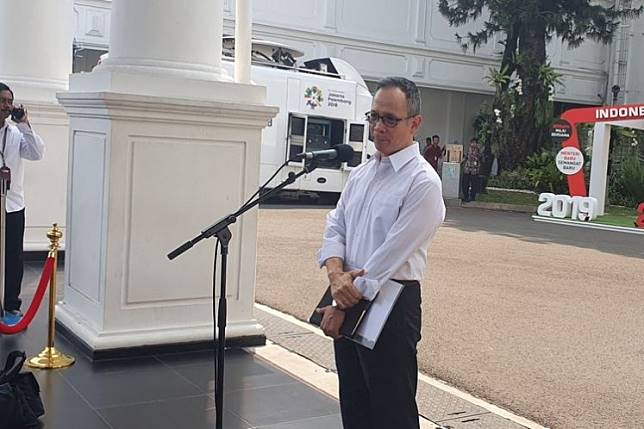Popular Reads
Top Results
Can't find what you're looking for?
View all search resultsPopular Reads
Top Results
Can't find what you're looking for?
View all search resultsMahendra to focus on US trade negotiation, palm oil as deputy foreign affairs minister
Change text size
Gift Premium Articles
to Anyone
I
ndonesian Ambassador to the United States Mahendra Siregar has been appointed by President Joko “Jokowi” Widodo as deputy minister of foreign affairs and tasked with concluding trade negotiations with the US and supporting the palm oil industry.
The former deputy trade minister and deputy finance minister told the press that the Generalized System Preferences (GSP) review by the US, which includes preferential trade terms such as special tariffs for a number of countries, will need to be concluded within one month.
“The President agrees to conclude the GSP review within one month, because it has a direct impact that could double Indonesia’s trade, including an increase in exports by US$10 billion to $25 billion in the next two to five years,” Mahendra said after a meeting with Jokowi at the Presidential Palace on Friday.
The US has been reviewing bilateral trade relationships that result in a deficit for the world’s biggest economy, including trade with Indonesia.
“Secondly, securing sustainability of the palm oil industry is important and needs to be well guided. The stakes are too high,” Mahendra continued. In a briefing document handed to journalists, President Jokowi set a target to reach $25 billion in palm oil exports and save $10 billion in foreign exchange reserves.
Palm oil, a key plantation crop for tropical Indonesia, generates significant foreign exchange revenue for the country and has contributed 1.5 to 2.5 percent to the gross domestic product. Smallholder oil palm farmers account for more than 3 million hectares of land in the country.
The European Commission decided in March to phase out the use of palm oil by 2030, as it is considered a high-risk vegetable oil over deforestation concerns, sparking a trade spat between the EU, one of the world’s top importers of palm oil, and producing countries Indonesia and Malaysia.
The briefing document showed “neutralizing the EU’s unfriendly position” against Indonesian palm oil as one of Mahendra’s priority tasks. Moreover, the President has ordered Mahendra to pursue an unconventional approach to trade deals that goes beyond free-trade agreements (FTA) toward bilateral deals.
“Pak President said this was going to be under the direct coordination of the President,” Mahendra said, adding that he had been given one year to meet these targets. Failing to do so, his position as deputy minister of foreign affairs would be handed over to “more competent personnel”.
Jokowi had previously planned to give the Foreign Ministry a stronger mandate for economic diplomacy by putting it in charge of international trade, while the Trade Ministry was to be merged with the Industry Ministry to focus on domestic trade.
But as that plan seems to have been scrapped, Foreign Affairs Minister Retno Marsudi said for the next five years she would keep the same priorities, while expanding and strengthening Indonesia’s economic diplomacy in accordance with Jokowi’s pledge to boost trade and investment to spur growth. (est)










